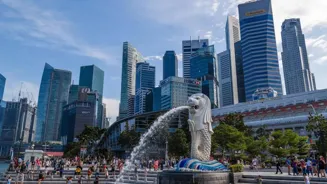Singapore has long been recognised as one of Asia’s leading financial and business hubs, attracting global professionals and investors seeking stability
and opportunity. For Indians interested in investing in Singapore’s real estate market, purchasing property offers an appealing proposition, but it comes with a set of specific rules and procedures that need to be carefully understood. While Singapore allows foreigners to invest in property, strict eligibility criteria and regulations apply, making it essential to navigate the process carefully to ensure compliance and a smooth transaction.
What Can Indians Buy in Singapore?
If you’re not a Singapore Citizen, Singapore PR, or a Singapore-registered company, you are considered a foreigner under Singapore’s property regulations. Permanent Residents (PRs) of Singapore are also categorised as foreigners in this context.
One common question among Indians familiar with "landed homes" is whether they can purchase such property in Singapore. The answer is yes, but only in select areas (such as Sentosa Cove) and with special permission from the Singapore Land Authority (SLA). Approval is case-by-case, and applicants who demonstrate significant economic contribution to Singapore have higher chances of success.
Restrictions You Must Know
To purchase certain types of property — such as vacant residential land, terrace or semi-detached houses, detached bungalows, and strata-landed homes — foreigners must apply for approval online through the SLA’s Land Dealings Approval Unit. The process is stringent, and approval is granted only in exceptional cases.
Additionally, non-PRs cannot purchase new HDB Build-To-Order (BTO) flats or Sale of Balance Flats (SBFs), and single PRs are restricted from acquiring resale HDB flats on their own.
Financial Considerations: Taxes, Fees, and Loans
Foreigners investing in Singapore’s property market are subject to several taxes, including:
- Buyer’s Stamp Duty (BSD): Applies to all buyers.
- Additional Buyer’s Stamp Duty (ABSD): Applies to foreigners and varies depending on ownership status. However, if a foreigner is married to a Singaporean and does not already own property, they may be exempt from ABSD.
- Other costs to consider include legal fees, administrative charges, and agent commissions (usually around 1% of the purchase price).
- Foreign investors can typically finance up to 75% of the property’s value via home loans, though a down payment must usually be made in cash. PRs may combine CPF savings with cash for the down payment.
Step-by-Step Process for Indians Interested in Buying
Determine Your Budget
Start by calculating your affordability using online loan calculators or getting pre-qualified for a home loan in Singapore. This helps avoid overspending and sets a realistic purchase range.
Research Properties
Explore property listings for private condominiums, executive condominiums, and resale HDB flats. Look for convenient locations, proximity to amenities, and efficient transport connections.
Hire a Local Agent
Engage a Singapore-based property agent to help you navigate regulations, shortlist properties, and manage the paperwork efficiently.
Apply for Loan and HFE (if needed)
Non-citizens can apply for a bank loan, and if purchasing an HDB flat, submit your details to obtain the HDB Flat Eligibility (HFE) letter, which confirms eligibility for the flat, grants, and loans.
Submit an Offer and Finalise the Deal
Once you find the right property and arrange financing, make a formal offer. Pay the option fee, secure financing, and complete the transaction, keeping in mind the cash requirement for foreigners.
Conclusion
Investing in Singapore’s property market can be a smart move for Indians seeking to diversify their investments and enjoy a secure financial environment. However, understanding eligibility rules, taxes, and special restrictions, particularly around landed properties, is critical.
For more information, official details can be obtained directly from the Singapore Land Authority (SLA) and HDB.












